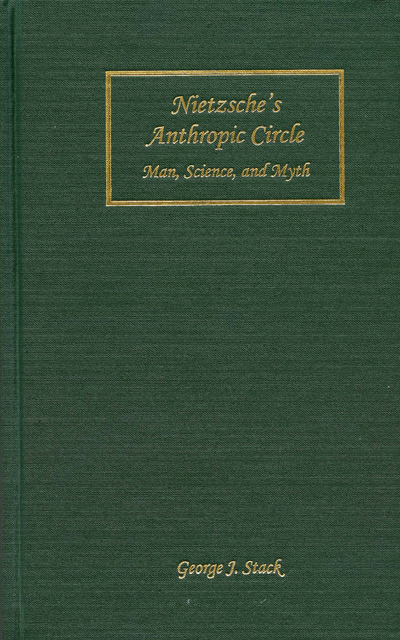Book contents
- Frontmatter
- Dedication
- Contents
- Preface
- Editions and Abbreviations
- 1 Anthropomorphic Projection
- 2 Agnosticism
- 3 A Dynamic Theory of Nature
- 4 Perspectivalism: Knowledge/Interpretation
- 5 Fictionalism in Science
- 6 The Structuralist Perspective
- 7 Evolutionary Epistemology
- 8 Tragic Knowledge and a Will-to-Power Psychology
- 9 The Cosmic Will to Power as Fable
- Notes
- Selected Bibliography
- Index
8 - Tragic Knowledge and a Will-to-Power Psychology
Published online by Cambridge University Press: 23 March 2023
- Frontmatter
- Dedication
- Contents
- Preface
- Editions and Abbreviations
- 1 Anthropomorphic Projection
- 2 Agnosticism
- 3 A Dynamic Theory of Nature
- 4 Perspectivalism: Knowledge/Interpretation
- 5 Fictionalism in Science
- 6 The Structuralist Perspective
- 7 Evolutionary Epistemology
- 8 Tragic Knowledge and a Will-to-Power Psychology
- 9 The Cosmic Will to Power as Fable
- Notes
- Selected Bibliography
- Index
Summary
[T]he dreadful basic text of homo natura must again be understood … man put back in nature; becoming master of many vain … interpretations … that have till now … painted over the eternal basic text of homo natura.
Nietzsche, Beyond Good and EvilThe philosopher of tragic knowledge … controls the unleashed drive for knowledge, not by means of a new metaphysics … a new faith. He feels it … tragic that the ground of metaphysics has been cut away and can never be satisfied by the colorful kaleidoscope of the sciences.
Nietzsche, NachlassNietzsche often appears to contradict himself in his voluminous writings. This is especially the case in regard to formulations of the idea of the will to power. Even the presentation of a theory of the nature of reality seems to contradict a forceful denial of the possibility of attaining metaphysical truth. How can Nietzsche proclaim that there is no ultimate truth and then proceed to develop a reductive, explanatory principle that is presented as the answer to the riddle of existence? A passionate antimetaphysician appears to end his reflections by propounding what has been called his “metaphysics of will to power.” Some have charged him with radical inconsistency in this regard while others have held that he regressed to a positive metaphysical standpoint, which he had abandoned even before the appearance of The Birth of Tragedy. But the conception of a universal will to power acting through all beings is neither a claim to metaphysical truth nor a claim to positive knowledge about “ultimate reality,” nor a novel discovery of a “principle of explanation.” The hypothesis of a universal will to power (or, more accurately, the hypothesis of a plurality of “wills to power”) is an elaborately crafted, sophisticated myth that is put forward as an experimental, metaphorical, poetic “truth.” Nietzsche never abandoned his view that we have no access to “truth-in-itself,” to a knowable transcendental “Truth.”
- Type
- Chapter
- Information
- Nietzsche's Anthropic CircleMan, Science, and Myth, pp. 162 - 184Publisher: Boydell & BrewerPrint publication year: 2005



